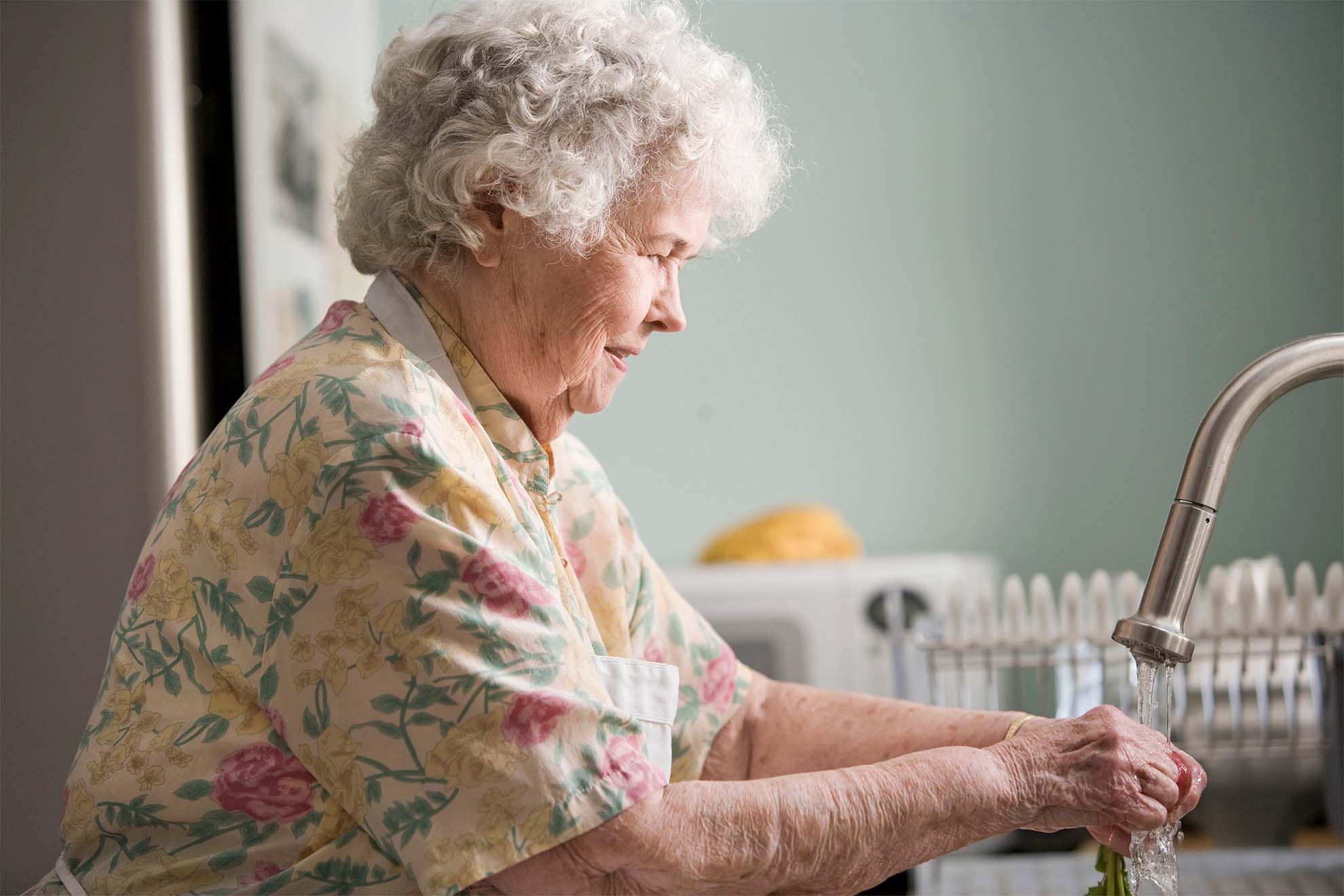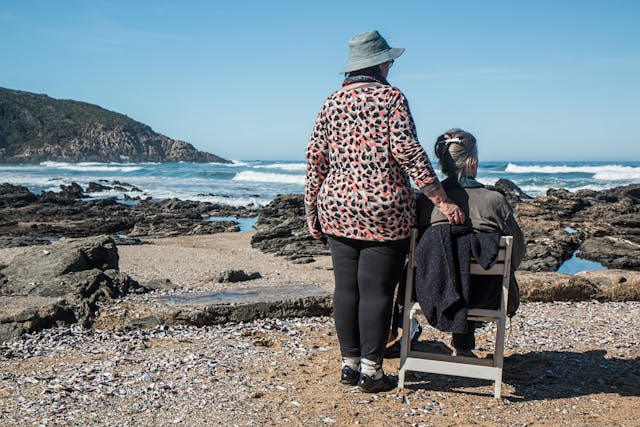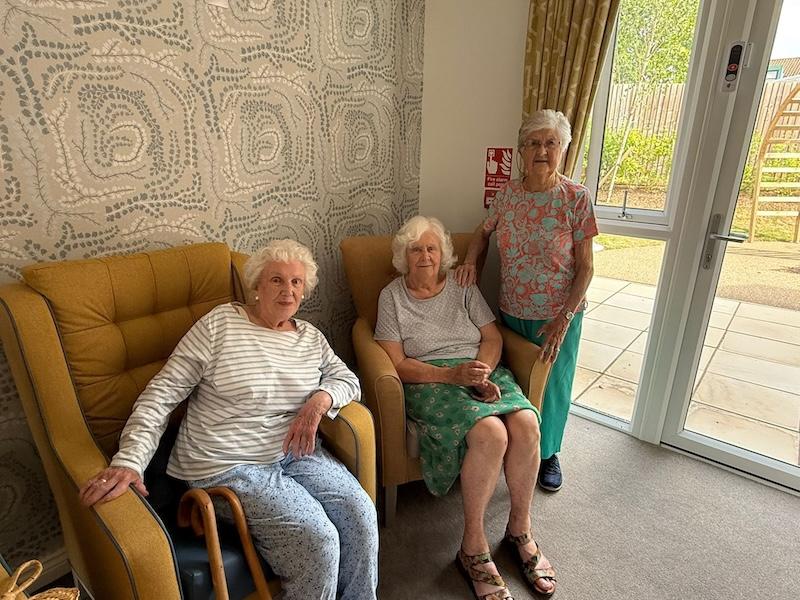Understanding Dementia Care In Oxfordshire: Deciding When It’s Time

Caring for a loved one with dementia is a journey filled with love, dedication, and often, heart-wrenching decisions. As the disease progresses, providing the level of care they need at home can become increasingly difficult. Understanding dementia behaviours and the entire journey is crucial as it highlights the evolving nature of care needs as the disease progresses, emphasising the importance of adapting to these changes.
You may find yourself struggling to keep up with their changing needs, wondering if you’re doing enough, or if it’s time to consider a specialised dementia care home. This decision is deeply personal, and there’s no single “right” time. However, understanding dementia behaviours, the signs and the benefits of specialised care can empower you to make the best choice for your loved one, yourself, and your entire family.

When Home Care May No Longer Be Enough
Dementia is a progressive disease, meaning the abilities and challenges a person with dementia faces will change over time. In the early stages, forgetfulness might be the primary concern, and in-home support from a family member or friend might be sufficient to provide care in the person's own home. But as it advances, tasks like bathing, dressing, medication management and ensuring safety become more complex. Toilet routines may become disrupted, requiring more hands-on assistance, and specialised nursing care may become necessary.
Those living with dementia may also forget to eat or drink regularly or have difficulty swallowing, making mealtimes a challenge. In addition, the ability to communicate effectively can decline, making it difficult for them to express their needs or wants. Home caregivers may find themselves stretched thin, unable to provide the 24/7 supervision and specialised care their loved one needs.
There's no denying that family caregivers are heroes, but they’re also human. The physical and emotional toll of caring for someone with dementia is immense. Studies show high rates of depression, anxiety, and even health problems among family caregivers. When a caregiver becomes overwhelmed, the quality of care for their loved one suffers.
Dementia can cause changes in personality, mood, and behaviour. These changes can include agitation, wandering, aggression, or sleep disturbances that become increasingly difficult, and even unsafe, to manage in a home setting.


Benefits of Specialist Dementia Care in Oxford
Dementia care homes offer 24/7 care from a team of professionals specially trained in managing all stages of dementia. This means your loved one receives consistent, expert care that is tailored to their individual needs, even when those needs are complex or behaviours are challenging.
Caregivers are trained to de-escalate situations, manage challenging behaviours, and provide dignified and compassionate support. They can also administer medications, assist with daily living activities, and ensure residents are safe and comfortable. This not only benefits your loved one but also gives you peace of mind knowing they are receiving the highest quality of care possible, in line with the Care Quality Commission's standards for specialist dementia care in Oxfordshire.
Specialised dementia care communities often feature secure wings, keypad entry/exit, and landscaped wandering paths that allow residents to move safely throughout the building and outdoor spaces. This ensures safety while accommodating a common need for movement in those with dementia.
At Floryn House, understanding dementia behaviours means we can also offer a variety of therapies and programs designed to stimulate the mind, reduce agitation, improve mood, and provide a sense of purpose for residents at all stages of dementia.
Music therapy, for example, has been shown to reduce anxiety and improve mood in people with dementia. Art therapy can provide a calming outlet for self-expression, and even those with limited mobility can participate by creating with different textures and materials.
Occupational therapy helps residents maintain independence in daily living skills for as long as possible, while cognitive stimulation activities keep the mind active and engaged. Residents can also participate in social activities and outings that provide opportunities for interaction and connection with others.
We understand that dementia affects the entire family. At Floryn House, we offer resources, support groups, and access to social workers who can help families navigate this difficult journey. Knowing your loved one is well-cared for allows caregivers to refocus on their own well-being and remain a positive, loving presence in their loved one’s life.
Signs It's Time To Consider a Care Home
The decision of when to move a loved one into a dementia care home is intensely personal. There’s no guidebook with a neatly defined timeline. However, reflecting on these key areas can help you assess your loved one’s needs, your own capabilities, and what will ultimately provide the best quality of life for everyone involved.
When Safety Becomes a Concern
Dementia can cause behavioural changes that create safety hazards. Wandering, especially at night, is a common concern, increasing the risk of falls or getting lost. Some individuals with dementia may become confused and accidentally start kitchen fires, misuse medications, or forget to turn off appliances.
If you find yourself constantly on edge, unable to relax even for a few hours, or if modifications to the home environment aren’t enough to keep your loved one safe, a specialised care setting might be necessary. These facilities have built-in safeguards, like secure entrances, clear signage and staff trained to redirect residents towards safe activities, providing you with much-needed peace of mind that your loved one is protected.

When Caregiving Becomes Unsustainable
Caregivers are often reluctant to put their own needs first. But the truth is, you can’t provide the best care for your loved one if you’re physically exhausted, emotionally drained, or neglecting your own health.
Caregiver burnout is a very real threat, and it can lead to resentment, depression, and even health problems of your own. If you find yourself increasingly short-tempered, unable to enjoy activities you once loved, or if your doctor has expressed concerns about your own well-being, it’s a strong sign that you need additional support.
A specialised care home doesn’t mean you’ve failed; it means you recognise your limitations and are prioritising both your health and your ability to continue being a loving, supportive presence in your loved one’s life.
When Quality of Life Decreases
As dementia progresses, providing meaningful stimulation and social interaction at home becomes incredibly challenging. Your loved one might become withdrawn, losing interest in former hobbies or struggling to engage in conversations.
A specialised dementia care environment offers a lifeline. Activities are tailored to residents’ current abilities, offering a sense of purpose and accomplishment. Singing groups, reminiscence therapy sessions, gentle exercise classes, and even simple shared tasks like folding laundry can combat loneliness, reduce agitation, and provide those with dementia moments of joy and connection that are difficult to replicate in a home setting. Seeking support from professionals and support groups who understand the challenges families face, including those trained to support people with cognitive and behavioural challenges, is crucial in making this difficult decision.
You're Not Alone
This decision doesn’t have to be made in isolation. Reach out to your loved one’s doctor, social worker, or a local Dementia UK or Alzheimer’s Society group for resources and support groups. Additionally, in Oxfordshire, Dementia Advisers are available through Dementia Oxfordshire, a key local resource offering support and guidance.
Individuals diagnosed with dementia, or their families, can refer themselves to an Adviser via the Dementia Oxfordshire support line or be referred by a doctor or social worker. Hearing the experiences of other families and getting personalised advice from professionals, including the dedicated support in Oxfordshire, can provide much-needed clarity and reassurance – you are not alone in this journey.
Floryn House, Where Compassion Meets Expertise
If you’re seeking dementia care in Oxford or the Yarnton area, we invite you to learn more about Floryn House. Our purpose-built home offers a safe, supportive, and enriching environment for every person living with dementia. Our dedicated team, specialised therapies, and luxurious amenities are designed to enhance the quality of life for both residents and their families, emphasising a welcoming and inclusive community that recognises the individuality of each person living with dementia.


Schedule a Tour
Choosing the right time to move a loved one with dementia into a care home in Kidlington is a major decision. We encourage you to visit Floryn House to experience our community firsthand and discuss your individual circumstances with our compassionate staff. Together, we can determine if our specialised dementia care is the right fit for your loved one's needs.





